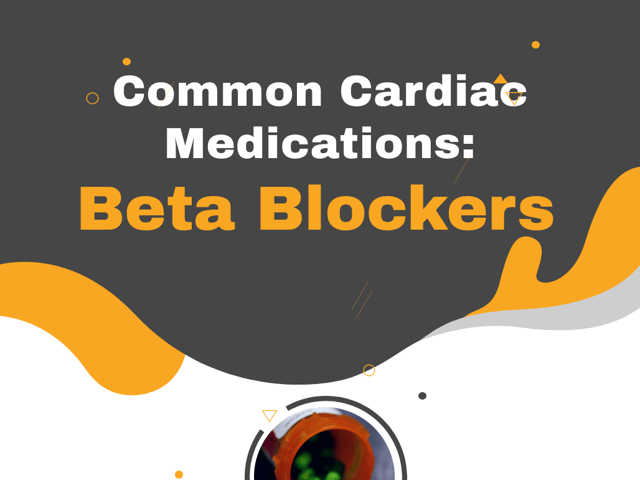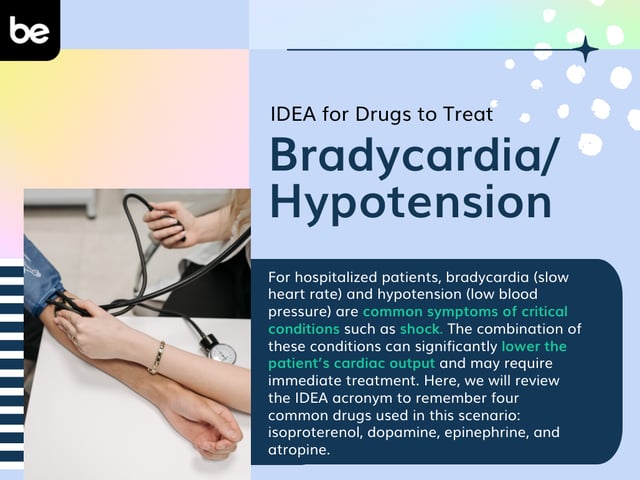
Common Cardiac Medications: Beta Blockers
This article is the third in a series on the three most common medications with cardiac-specific mechanisms of action, ACE Inhibitors, Calcium Channel Blockers, and Beta Blockers.
Information on the other two types can be found here:
How Beta Blockers Work
Beta Blockers work by blocking the effects of epinephrine (adrenaline) and norepinephrine and reducing the amount of renin produced. This causes your heart to beat at a slower pace and with less force. In addition, they widen the arteries and veins. This not only lowers blood pressure but also improves blood flow. They are used to treat high blood pressure and arrhythmias, but they are usually only prescribed to treat high blood pressure if other medications, such as diuretics, have not been effective.
The Drug Names
The generic forms of these drugs usually end in -olol and they come in various brand names:
| Generic | Commonly-Used Brand Name |
| Metoprolol | Lopressor™ |
| Labetalol | Trandate™, Normodyne™ |
| Esmolol | Brevibloc™ |
Dosage and Monitoring
The dosages for these medications vary. When they are prescribed for use at home, they are oral pills, but they also can be given by injection in an inpatient setting. Beta Blockers are usually not prescribed for people with diabetes, but if they are, these patients need to monitor their blood sugar more closely as blocking epinephrine can interfere with glycogenesis and may block signs of hypoglycemia.
Side Effects
Some Beta Blockers cause a slight gain in weight. They can also impact the production of melatonin, which may cause a disruption to sleep and/or insomnia. Other common side effects include dizziness, fatigue, cold extremities, and/or upset stomach.

Keep Reading

National Council Licensure Examination-Registered Nurse Blog
What to Expect in Nursing School Clinicals
The clinical experience is a rite of passage for all nursing students, …

National Council Licensure Examination-Registered Nurse Blog
What is the NCLEX Next Generation (NGN) Exam?
If you’re interested in becoming a registered nurse, you likely know th…

National Council Licensure Examination-Registered Nurse Blog
IDEA for Drugs to Treat Bradycardia/Hypotension
For hospitalized patients, bradycardia (slow heart rate) and hypotensio…